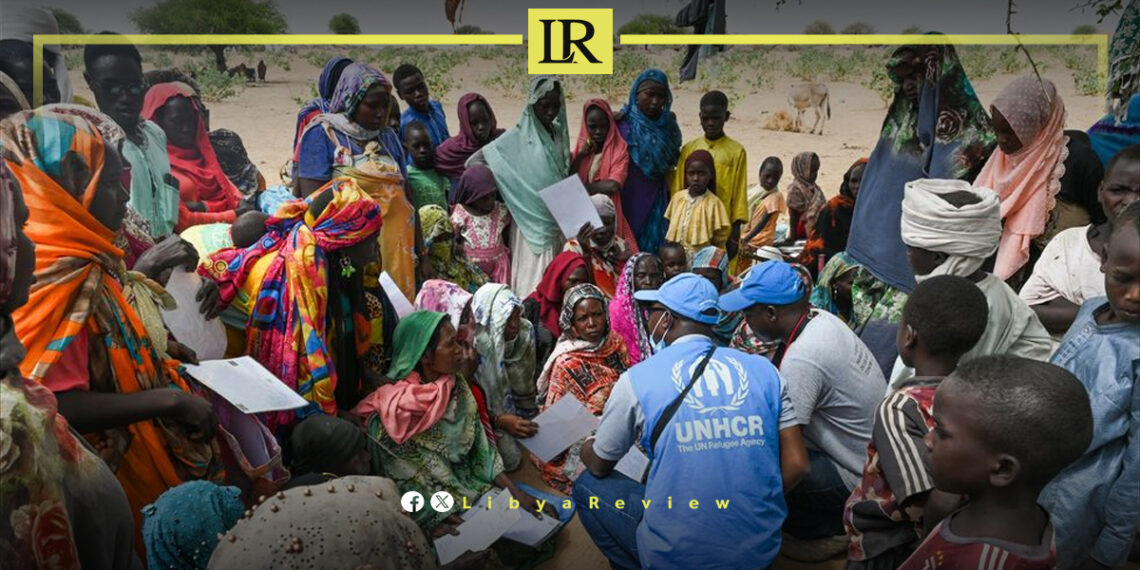The United Nations expects the number of Sudanese refugees in Libya to rise sharply, reaching more than 650,000 by the end of 2025, as the war in Sudan continues to drive mass displacement across borders.
The UN Refugee Agency (UNHCR) has already recorded over 313,000 Sudanese refugees entering Libya since April 2023, with between 300 and 600 new arrivals now crossing the southern border every day.
Most refugees are fleeing the Darfur region, one of the hardest-hit areas in Sudan’s ongoing civil war. Libya has become a key destination despite its own instability, offering the nearest accessible border for thousands escaping violence.
The growing influx is placing enormous pressure on Libya’s limited resources. The UN warns of worsening humanitarian conditions in southern towns and across cities struggling to cope with the rising population. Access to clean water, food, shelter, and medical care is rapidly deteriorating, especially in remote areas like Kufra, which has become a major entry point for displaced Sudanese families.
The World Food Programme (WFP) reported distributing 361 metric tons of food aid to over 34,000 Sudanese refugees in June alone, across seven sites in Libya. However, WFP estimates that it will need an additional $5 million in funding to meet basic humanitarian needs through the end of the year.
While Libya is officially classified as an upper-middle-income country, the UN notes that mismanagement, conflict, and lack of unified governance have weakened public services. Much of Libya’s national budget is spent on fuel subsidies and imports, leaving little room for social support. The refugee crisis is intensifying demands on an already overstretched system, where many Libyans themselves live just above the national poverty line.
The UN and aid agencies are calling for urgent international support to address the growing crisis. As Sudan’s war enters its second year, Libya is facing the dual challenge of managing its internal fragility while absorbing a steadily rising number of vulnerable people in desperate need of assistance.


